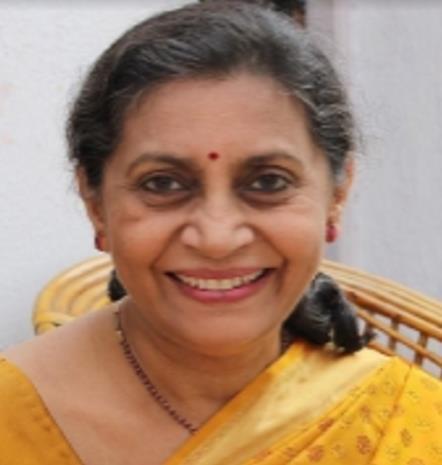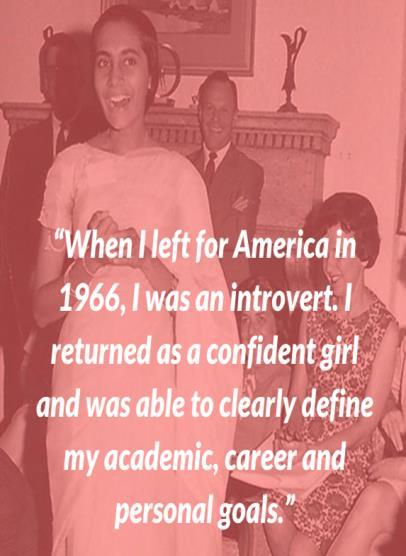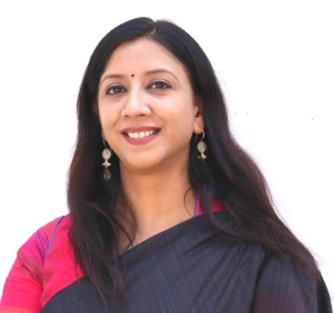
2 minute read
LEADERSHIP
Angela Shriani Roye, Chairperson
Angela Shriani Roye is a well-known educationist in the field of Early Childhood Education and a passionate environmentalist
Early in her career, Angela served Vijaya Bank for two decades at various senior managerial positions and eventually served as Executive Assistant to the Chairman and Managing Director. Later, she took voluntary retirement to devote her time completely to Early Childhood Education.
In 1997, Angela Roye’s Child Development Center, Bangalore was established. The school followed a unique methodology and curriculum developed by Angela. The curriculum, known as
‘Angela Roye’s method of Early Childhood Education’, incorporates the best of various philosophies of early childhood education – Montessori, Waldorf, Playway, Kindergarten and Reggio Emilia Approach The center offered a curriculum that makes learning fun, meaningful and relevant to changing times. This curriculum prepares preschool children for more formal schooling by fostering their all-round development in a nurturing environment.
In addition, she initiated several programs for creating environmental awareness among children; even preschoolers and edited a magazine Program for Environmental Awareness in School (PEAS).
As an AFS Alumna back in 1966-67, she spent one year as a high school student in the USA. Angela expected plenty of cultural differences between her home in Bangalore, Karnataka, India and her new home in Lincon, Nebraska USA when she traveled as an AFS participant. What Angela did not expect, was such a different approach to high school education! During her year at Lincoln High School, Angela got the chance to choose subjects to study and that was a new experience for her Having chosen Home Economics as one of her subjects, Angela studied Early child development which fascinated her. This led her to chose her career and education.
After returning to India, she continued her studies and completed postgraduation in Child Development Angela’s academic experience in 1966 fueled a lifelong interest in education for young learners.
Presently, Angela is the Chairperson of AFS Intercultural Programs India The organization, with a presence in 55+ countries, fosters world peace and develops global understanding and intercultural competences through various programs. Under her leadership and visionary approach, the organization is growing strong and relevant in today’s fast-changing and interconnected world.

Diya Badgel, National Director

‘Education is the key to the Future’ – Alek Wek
The schools of today have to create a dynamic learning community that inspires and nurtures every individual, focusing on the holistic development of students through quality education and 21st century skills. The UN’s SDG Goal 4 is about Quality Education and NEP 2020 stresses on the same This is what AFS India reiterates and provides intercultural learning opportunities for lifelong learning as well as sharing of best practices through exchange programs.
The pattern of teaching and learning is changing as the methods opted for education are becoming more innovative, exciting, creative, and productive and making the students learn at the global level Also, in this VUCA world, with technology affecting every aspect of life, education becomes physical
Futuristic schools and future educators will have to face the fact that students would be required to learn in a flexible, personalized format that is learner-centric. Futuristic learning involves continuous progress to higher levels of critical and creative thinking in a collaborative environment, creating lifelong learners. It encourages classroom engagement and learning as well as emphasizes the use of modern approaches and skill-based learning processes.
The future of learning is where students will want their learning experience to meet their interests, time constraints and academic needs. This is possible through blended learning and learning in the metaverse for which we require futuristic educators to make it effective, meaningful and sustainable.
AFS India thus collaborates with stakeholders to help develop futuristic schools and create global citizens.










